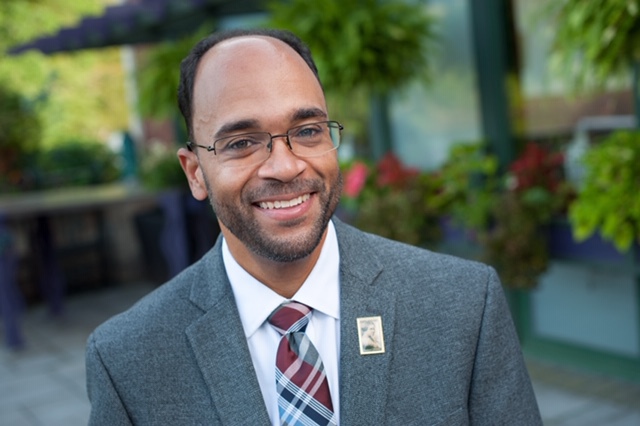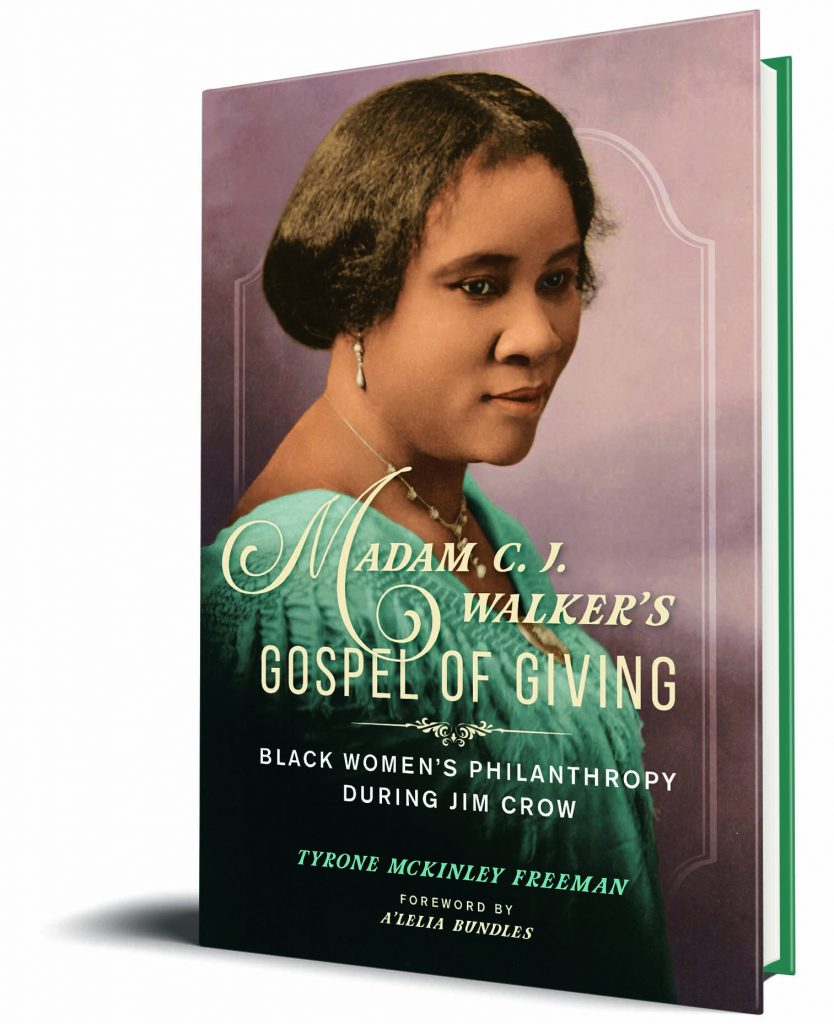Author of Madam C.J. Walker’s Gospel of Giving: Black Women’s Philanthropy During Jim Crow, Tyrone McKinley Freeman, answers questions about his inspirations, motivations and what he wants readers to know about his book.
Q: Why did you decide to write this book?
I wrote this book because the public conversation and historiography about philanthropy in America has neglected people of color as givers. The deeply-rooted tradition of African American philanthropy is all too often ignored, and that has to change. Black women are central in this tradition, so Madam Walker became the perfect vehicle for telling this larger history. Prior to doing this work, I thought I knew Madam Walker. But by centering philanthropy, the book provides a new and fresh look at Walker herself so that readers emerge with a deeper understanding of who she was and with a deeper appreciation for Black women’s historical generosity. As a historian trained in philanthropic studies, I also wrote the book to demonstrate the power of using philanthropy as an analytical lens for pursuing questions and conducting research—something that I hope more historians will do.
Q: Who were your biggest influences?
Madam Walker was a churchwoman and a clubwoman. My mother is a churchwoman and a clubwoman. Pretty much all of the women in my family going back generations are or were churchwomen and clubwomen. They are this history that I write about in the book. Their service and giving of themselves is the reason why I am here today. This is why I was able to recognize such behaviors and actions in the archives as philanthropy even though the larger historiography has not typically engaged them in that way. I’m heavily influenced by generations of Black women’s historians whose scholarship and direct conversations are foundational to my book. And, one of my undergraduate professors, Dr. Sheila M. Foor, from Lincoln University (PA) is a huge influence because 25+ years ago she told me I could write a book. It may seem like a small thing, but her planting that seed meant everything and is indicative of what I write about in the book as education as a form of philanthropy. As a graduate of an HBCU, I benefited from this type of education that helped me develop and step into a vision for myself in spite of what society said about me as a Black person.
Q: What is the most interesting discovery you made while researching and writing your book?
In addition to being an entrepreneur and a philanthropist, Madam Walker was also an educator. She opened a national network of beauty schools in the early twentieth century and offered a curriculum to Black schools in the South. The schools lasted into the 1970s. Given the constraints on Black education during Jim Crow, it is important that she created an alternative educational pathway for Black women to develop themselves as professionals and to earn a living that enabled them to take care of their families. In the book, I tell the story of her schools and how Walker impacted Black education during this time period, which is one of the book’s contributions.
Q: What myths do you hope your book will dispel or what do you hope your book will help readers unlearn?

Previously, I worked as a professional fundraiser for several nonprofits. I have seen the ways in which Black donors and donors of color, more broadly, have been ignored and not valued in the field. So, there are several myths that I hope to dispel, such as Black people do not give and they do not have a history of giving. That Black people are recipients of white people’s philanthropy, but not agents of their own. That their philanthropy is “new and emerging” in the modern world because it has only been recently that they developed wealth through sports and entertainment in order to become philanthropists. These ideas are patently false and have no basis in history. They are extensions of the racist ideas that undergirded slavery and Jim Crow. Black generosity goes back to the early days of the Black experience in America, and has its origins in pre-colonial West Africa. Historically speaking, it is so much more than a response to American racism and sexism, and is indicative of a deeper humanity and dignity that predates America itself.
Q: What is the most important idea you hope readers will take away from your book?
I hope that people will unlearn the idea that philanthropy belongs to the wealthy elite, and that they cannot do anything meaningful or helpful for others because they might not have a lot of money to give away. Madam Walker’s gospel of giving is an accessible form of philanthropy available to the rest of us which says anyone can be a philanthropist because anyone can give from what they have at any particular moment. So, the most important idea I hope readers take away is that philanthropy does not generate from wealth, it comes from generosity. We do not have to wait to give, be helpful to others, and challenge systems. We can start right now. And as we acquire more, we can do more.
Q: What do you like to read/watch/or listen to for fun?
Ok, so I love reality TV. Yeah, I said it! The yachting shows, the business shows, the medical shows, the marriage and wives shows. I am regularly horrified by some of the antics, but, for me, they provide much needed respite from the heaviness and absolute horror of the current political times, and the rigor of intellectual work. I also love music. I’m old school hip hop and R&B from the 80s and 90s—Tribe, Boogie Down Productions, Salt n Pepa, Luther, SWV, etc. I love the Neo-Soul folks, Erykah Badu, Maxwell, Jilly from Philly. I like new folks coming through now, too, like Daniel Cesar, H.E.R. and Jhene Aiko. I’m a huge New Edition fan, as well. I know the dance steps and everything. I’m still mad at Johnny Gill for taking my spot in the group after Bobby Brown left. But don’t get me started. LOL!

